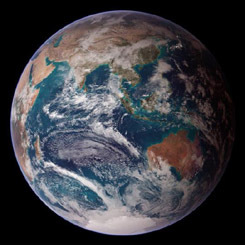
The IPCC is the Intergovernmental Panel on Climate Change.
Why was the IPCC Formed?
The IPCC was formed in 1988 by the United Nations Environmental Programme and World Meteorological Organization to gain a better understanding of global climate change. The IPCC examines, evaluates, synthesizes, and reports information from peer-reviewed published literature, but does not conduct new research. IPCC reports are used worldwide, most notably by parties to the United Nations Framework Convention on Climate Change, as a credible
and comprehensive source of information on climate change, its potential consequences, and options to adapt to or mitigate climate change.
How is the IPCC Organized?
The IPCC is organized into three working groups. Working Group I assesses the science of climate change; Working Group II focuses on the impacts and adaptations to climate change; and Working Group III reviews options for climate change mitigation. Each Working Group has a Technical Support Unit (TSU) to help direct the production of reports and a Bureau to oversee the process. The Working Group II TSU is housed in Washington DC and the others are located overseas.
Mandate
The IPCC was established to provide the decision-makers and others interested in climate change with an objective source of information about climate change. The IPCC does not conduct any research nor does it monitor climate related data or parameters. Its role is to assess on a comprehensive, objective, open and transparent basis the latest scientific, technical and socio-economic literature produced worldwide relevant to the understanding of the risk of human-induced climate change, its observed and projected impacts and options for adaptation and mitigation. IPCC reports should be neutral with respect to policy, although they need to deal objectively with policy relevant scientific, technical and socio economic factors. They should be of high scientific and technical standards, and aim to reflect a range of views, expertise and wide geographical coverage.
 Print
Print Email
Email







